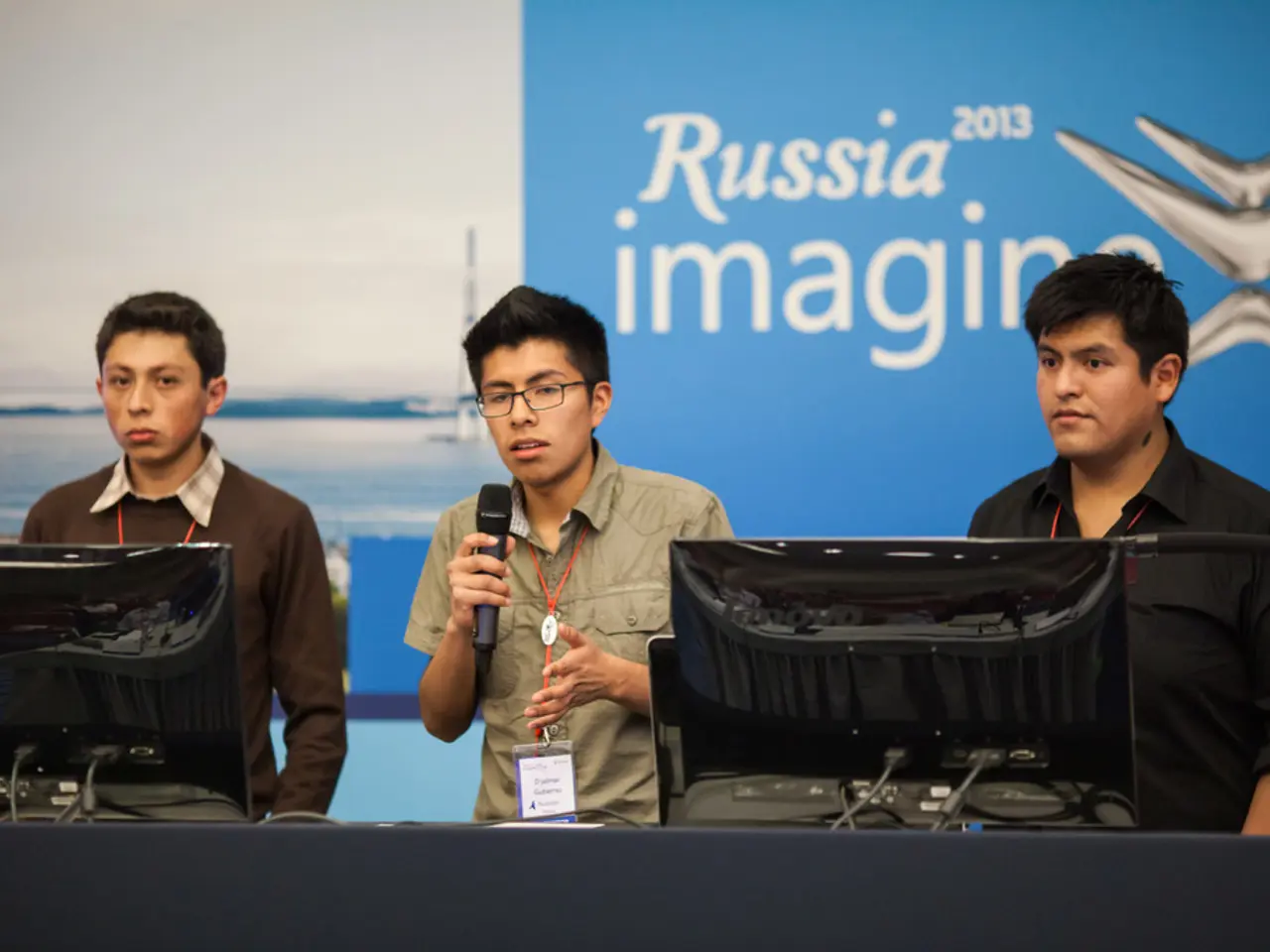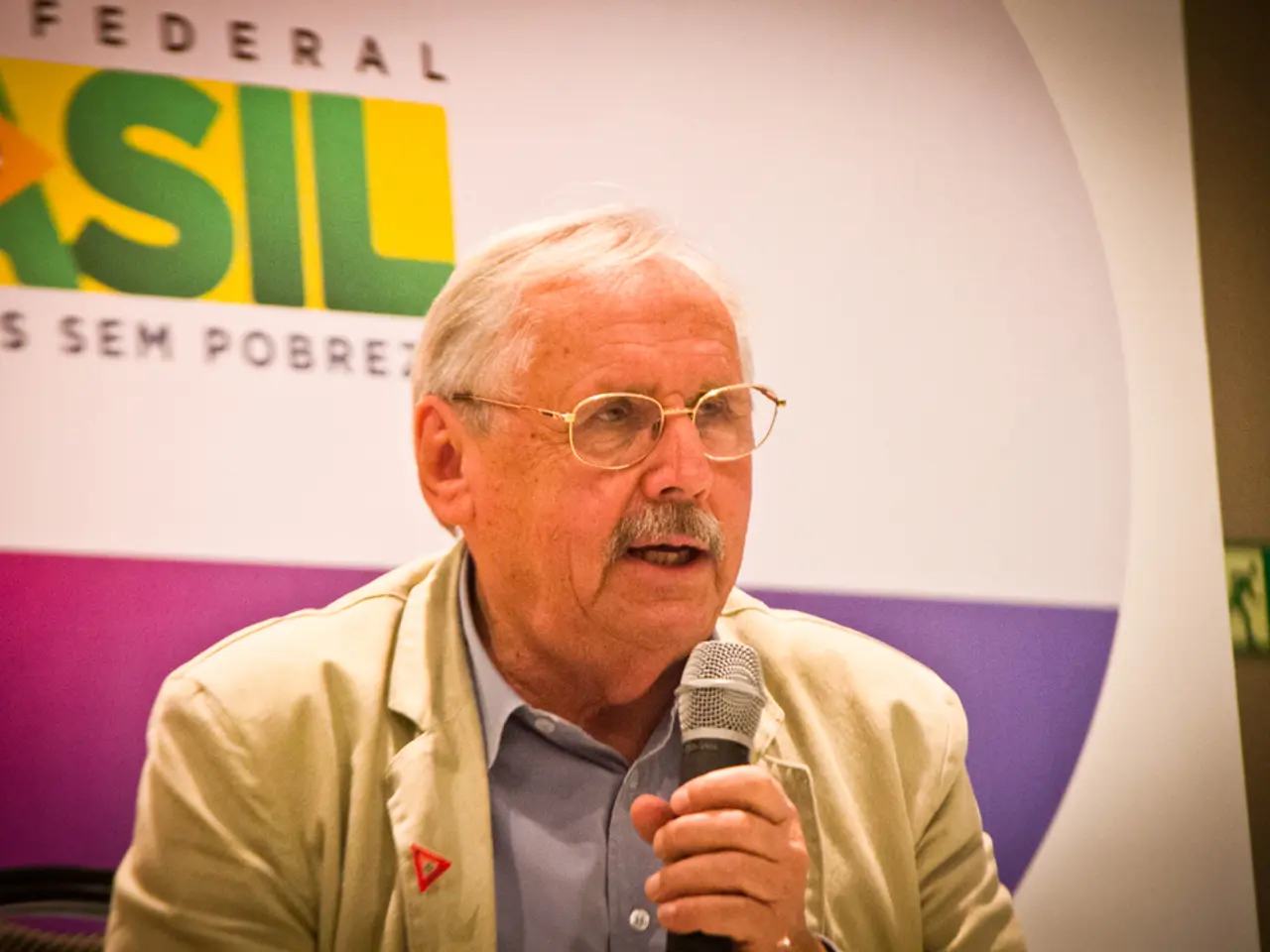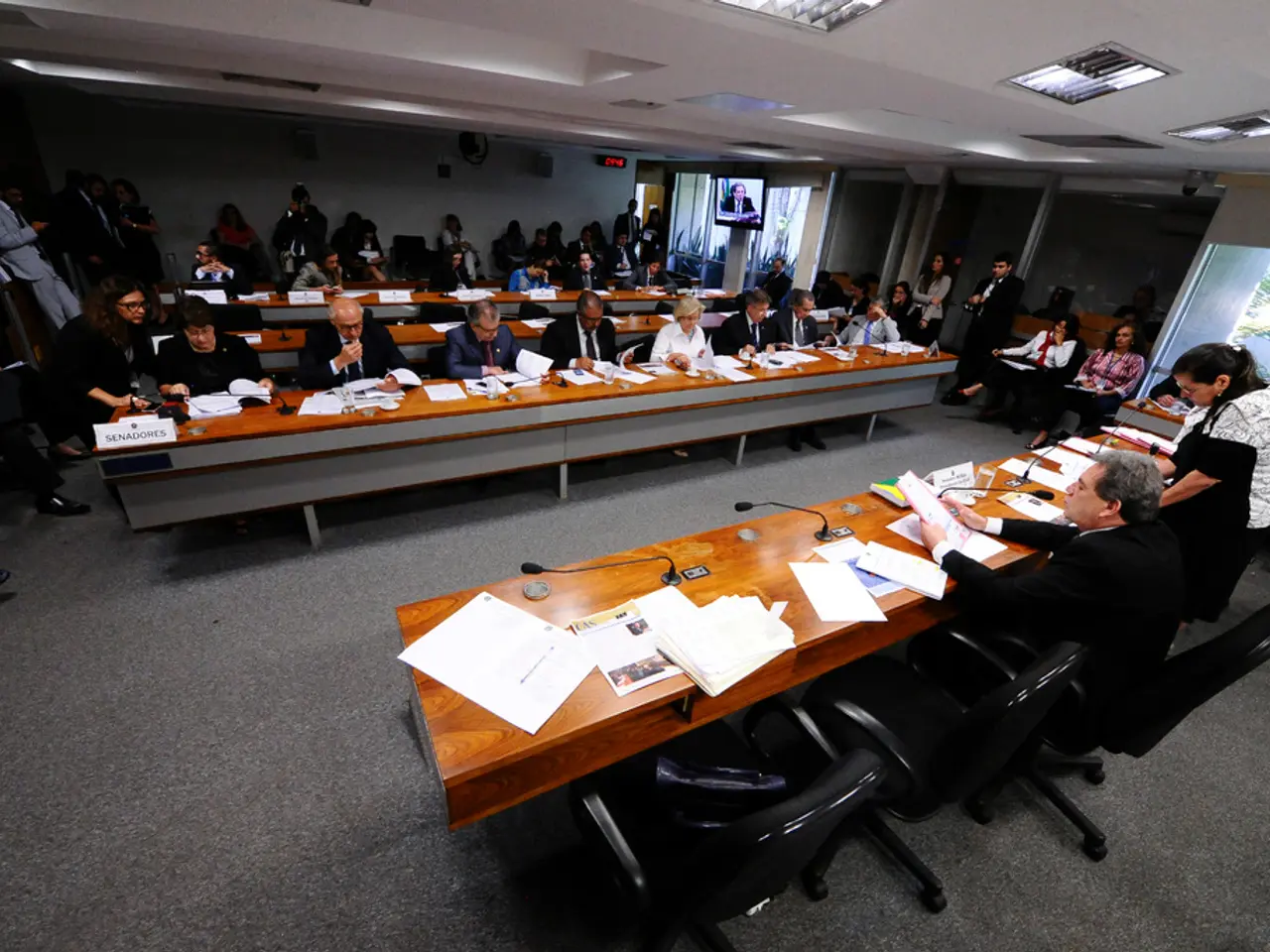Russia's President Putin Expresses Skepticism Over Trump's Threats to Halts War with Ukraine, According to News Reports
In the heart of Europe, the conflict between Russia and Ukraine continues to intensify, with Russia focusing on consolidating control in Eastern Ukraine and launching offensive operations, particularly in the northern Kharkiv Oblast.
As of early August 2025, Russia's goal remains clear: capturing four Ukrainian regions it claims to annex and establishing tighter administrative control. This includes efforts to integrate the local population forcibly into Russian systems.
Recent developments have seen Russian forces increasing their production of drones and missiles, enabling larger strike packages and continuous assaults near key locations like Vovchansk and Synelnykove. However, territorial gains have been slow, with the offensive in the Kharkiv region stalling after initial advances in mid-2024.
Russia currently holds roughly 20% of Ukrainian territory, a fact that has not deterred its ambitions. The conflict remains dynamic, with territorial changes slowing; Russia gained about 31 square miles in the week before August 6, 2025.
Diplomatic efforts have been ongoing, influenced by the changing U.S. administration. While Russia and the U.S. have engaged in peace deal mediations, Ukraine remains cautious about talks involving only Russia and the U.S., fearing exclusion and inadequate security guarantees.
The election of U.S. President Trump introduced hopes for an end to the conflict in 2025, given his stated intent to broker peace. However, uncertainties persist about the war's trajectory and the continuation of military aid to Ukraine.
Russian war efforts have been sustained by ammunition supplies from North Korea and imports from China of dual-use components. These demands have been rejected by Ukraine. Trump's special envoy, Steve Witkoff, is expected to visit Russia this week, potentially offering an opportunity to strike a deal before the deadline.
Despite the ongoing talks, Putin does not believe now is the time to end the war. He is privately concerned about the recent deterioration of U.S. ties, but his war goals take precedence over improving relations with Washington and the West. Putin's political reputation and legacy are heavily invested in the war in Ukraine.
The first Russian source called the US offer a "fantastic chance," but noted that stopping a war is much more difficult than starting it. The US has threatened to impose new sanctions and 100% tariffs on countries purchasing Russian oil, with China and India being the biggest buyers.
Russia's stated demands in the negotiations include a full Ukrainian withdrawal from the four regions and acceptance by Kyiv of neutral status and limits on the size of its military. Trump has acknowledged Russia's skill in evading sanctions.
Russia aims to take full control of the Ukrainian regions of Donetsk, Luhansk, Zaporizhzhia, and Kherson. Ukrainian territorial losses have been significant in the past three months, losing approximately 502 square kilometres in July.
The current talks process between Russian and Ukrainian negotiators is seen as an attempt by Moscow to convince Trump that Putin is not rejecting peace, but the talks lack substance. Putin's determination to continue the war is driven by his belief that Russia is winning and by skepticism that additional US sanctions will have a significant impact.
Despite the challenges, there is a fragile and uncertain path ahead, where military stalemates, partial territorial controls, and uneasy diplomatic efforts are likely to continue shaping the conflict’s evolution.
- The ongoing negotiations between Russia and Ukraine may involve discussions about multiple topics, such as war-and-conflicts, politics, and general-news, given the disagreements over Russian demands for a full Ukrainian withdrawal from Donetsk, Luhansk, Zaporizhzhia, and Kherson, and the Ukrainian wish for guaranteed security.
- In the wake of increased Russian imports of drone and missile components from China, and ammunition supplies from North Korea, the international community may be compelled to consider broader implications of these purchases, such as their impact on war-and-conflicts, politics, and general-news, in the ongoing conflict between Russia and Ukraine.






